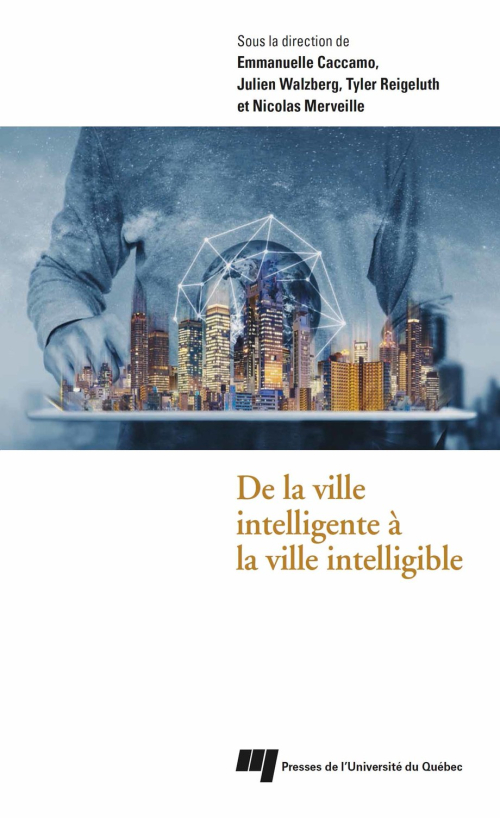 Emmanuelle Caccamo, Julien Walzberg, Tyler Reigeluth and Nicolas Merveille (eds.). De la ville intelligente à la ville intelligible, Québec, Presses de l’Université du Québec (“Cahiers du Gerse” Series), 2019.
Emmanuelle Caccamo, Julien Walzberg, Tyler Reigeluth and Nicolas Merveille (eds.). De la ville intelligente à la ville intelligible, Québec, Presses de l’Université du Québec (“Cahiers du Gerse” Series), 2019.
Commented by Ana Brandusescu, 2019–2021 professor of practice (August 2021):
The challenges smart cities bring to democracies are plenty. In his chapter “The smart city: Challenges for democracy,” Jean-François Gagné brings the debate from the oft-analyzed issues of legal rights, corporate agendas and corporate power, to power imbalances in civic participation and engagement in smart cities. Gagné uses democratic models to frame his analysis of the political choices available to citizens. This is a challenging topic to unpack as it questions the status quo and the choices of technologies used, particularly their impacts and influence on citizens and democracy at large. With smart cities come algorithms, AI and emerging technologies more broadly that have profound social, economic, and political implications.
Two issues come to light in this chapter: tech lobbying and public trust. What we see now is private governance and private regulation that supports monopolistic behaviour and the sole sourcing of contracts to certain vendors. This governance prioritizes private interest over public interest. How effective can tech lobbying on behalf of the public be if lobbying on behalf of companies is so powerful? Consequently, the blurring of public and private actors can remove responsibility and accountability, which can have profound effects on how our institutions are governed. Given the well-known and researched issues of algorithmic systems like discrimination on race, gender, class, and beyond, how can algorithmic participation benefit people?
Gaining public trust requires more than transparency. It requires an investment in and long-term commitment to accountability and justice. Sometimes we can never trust certain people or institutions based on their track record of public accountability or human rights. Trust also requires an investment in governance structures and systems that ensure government decisions can be challenged. A “citizen approach” suggests a need to participate as well as to be listened to. This is a long-term, systems challenge that brings us beyond the realm of the smart city. At the moment, those who are heard are still the ones with resources like education, money, and time. With smart cities, achieving participation that is meaningful and in-depth will take long-term support and resources. The debates raised in Gagné’s chapter will be important to revisit as cities like Montréal work on efforts to put new policies into action like the Digital Data Charter. [Watch the video recording of the seminar based on this book.]
CIRM supports independent bookstores and encourages you to buy this work through Les Libraires.
